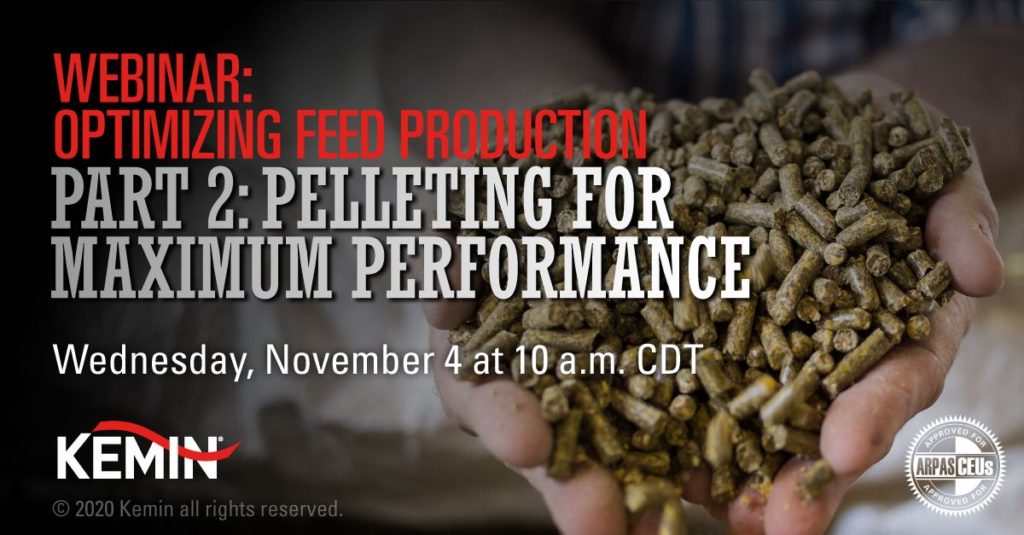Optimizing Feed Production Webinar Series Sponsored by Kemin
go.ncsu.edu/readext?745444
en Español / em Português
El inglés es el idioma de control de esta página. En la medida en que haya algún conflicto entre la traducción al inglés y la traducción, el inglés prevalece.
Al hacer clic en el enlace de traducción se activa un servicio de traducción gratuito para convertir la página al español. Al igual que con cualquier traducción por Internet, la conversión no es sensible al contexto y puede que no traduzca el texto en su significado original. NC State Extension no garantiza la exactitud del texto traducido. Por favor, tenga en cuenta que algunas aplicaciones y/o servicios pueden no funcionar como se espera cuando se traducen.
Português
Inglês é o idioma de controle desta página. Na medida que haja algum conflito entre o texto original em Inglês e a tradução, o Inglês prevalece.
Ao clicar no link de tradução, um serviço gratuito de tradução será ativado para converter a página para o Português. Como em qualquer tradução pela internet, a conversão não é sensivel ao contexto e pode não ocorrer a tradução para o significado orginal. O serviço de Extensão da Carolina do Norte (NC State Extension) não garante a exatidão do texto traduzido. Por favor, observe que algumas funções ou serviços podem não funcionar como esperado após a tradução.
English
English is the controlling language of this page. To the extent there is any conflict between the English text and the translation, English controls.
Clicking on the translation link activates a free translation service to convert the page to Spanish. As with any Internet translation, the conversion is not context-sensitive and may not translate the text to its original meaning. NC State Extension does not guarantee the accuracy of the translated text. Please note that some applications and/or services may not function as expected when translated.
Collapse ▲Kemin Animal Nutrition and Health – North America is hosting a series of webinars to help attendees optimize their feed production.
The next webinar, Optimizing Feed Production – Part 2: Pelleting for Maximum Performance, features a PDPS alum, Dr. Wilmer Pacheco, and will cover using pelleted feed to maximize livestock and poultry performance.
Date: November 4, 2020
Time: 11:00 a.m. EST/10:00 a.m. CST
From the webinar description:
During the first webinar in the Optimizing Feed Production series Part 1: Improving Pelleted Feed Quality sponsored by Kemin Animal Nutrition and Health – North America, attendees learned techniques to improve pelleted animal feed quality. In this second installment, attendees will learn from two expert speakers on how to use pelleted feed to maximize livestock and poultry performance. Dr. Wilmer Pacheco, extension specialist and assistant professor at Auburn University will discuss the “Effect of corn particle size and feed form on broiler performance.” He will specifically focus on:
- The optimum particle size in broiler diets and the influence of particle size by the birds age and feed form
- The microstructure of the pellet to increase reverse peristalsis and nutrient digestibility
The second speaker, Dr. Sarah Goodgame, poultry nutritionist with Provimi-Cargill Animal Nutrition will discuss “Live production implications of pellet quality and poultry performance.” During her presentation, attendees will learn:
- How pelleting feed improves nutrient delivery, reduces feed sorting and wastage
- Practical ways to increase feed intake, improved feed efficiency and increase production performance
- Opportunity to learn from each other through LIVE Q&A!
This webinar series is approved for American Registry of Professional Animal Scientists (ARPAS) CEUs. Earn 1 CEU for each of the two segments in this series.
The first webinar in the series, Optimizing Feed Production – Part 1: Improving Pelleted Feed Quality, featuring Feed Milling’s Dr. Adam Fahrenholz, is now available on demand.



